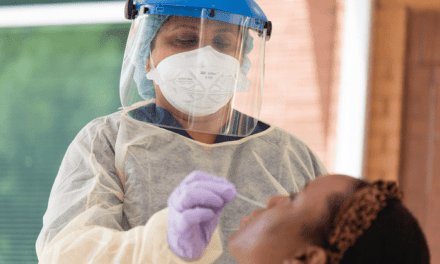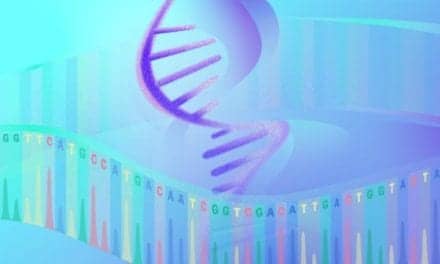Beckman Coulter, Brea, Calif, has launched it Access SARS-CoV-2 Immunoglobulin M (IgM) assay. The new IgM antibody test demonstrated 99.9% specificity against 1,400 negative samples and 98.3% sensitivity at 15 to 30 days post-symptom onset. Of the tests developed by the top four in vitro diagnostic manufacturers capable of delivering high-volume testing to the Untoied States, Beckman Coulter’s test is the only SARS-CoV-2 IgM assay which targets antibodies that recognize the receptor binding domain (RBD) of the spike protein which SARS-CoV-2 uses to bind to a human cell receptor. This is significant as antibodies which target the RBD have the potential to be neutralizing and thus prevent future infection by blocking the virus from entering the cell.
Beckman Coulter Launches SARS-CoV-2 IgM Antibody Test

“Our new SARS-CoV-2 IgM assay provides information about an individual’s immune status with a positive predicative value of 95.5% in a population with disease incidence as low as 3%,” says Julie Sawyer Montgomery, president of Beckman Coulter. “As COVID-19 outbreaks continue to grow in intensity in many of our communities, highly accurate tests such as this are critical for providing reliable information for both individual health decisions as well as population-based immunity monitoring.”
“At a time when a number of regions around the country are experiencing long wait times for testing due to shortages of molecular diagnostics [RT-PCR testing], antibody testing may play a key role in helping physicians determine if their patients have had a recent infection,” says Shamiram Feinglass, MD, MPH, chief medical officer for Beckman Coulter. “Recent studies have identified asymptomatic individuals with a negative PCR test and a positive IgM test1 suggesting these patients may have had a low viral load or provided inadequate PCR samples. A positive IgM antibody test may help physicians identify some of these patients who received a false negative PCR result and should self-isolate until a follow up PCR test can be administered.” It has recently been reported that there are a number of states experiencing shortages of molecular diagnostics for the novel coronavirus, as well as backlogs on their analyzers due to high demand as infection rates surge. The Access SARS-CoV-2 IgM assay can help to alleviate this issue because it helps to identify patients with an immune response to SARS-CoV-2. Beckman Coulter’s new IgM assay is part of a suite of testing solutions the company is offering to guide clinical and public health decision making during the covid-19 pandemic. The company developed separate SARS-CoV-2 IgM and SARS-CoV-2 Immunoglobulin G (IgG) antibody assays to better help clinicians determine a patient’s immune status in response to a recent or past infection. The Beckman Coulter IgM assay detects antibodies that may emerge earlier in the course of infection and then dissipate, while the IgG test detects antibodies associated with the longer-term immune response. Both IgM and IgG assays can identify antibodies in asymptomatic individuals, and since each person’s seroconversion process is different, the two tests can be used together to provide the most accurate view into their immune response. “COVID-19 presents as a complex, multi-system disease which requires multiple diagnostic tests to help monitor the disease progression of patients across multiple care settings,” says Sawyer Montgomery. “Our organization is working tirelessly to provide a multitude of high-quality tests that help clinicians not only learn about each patient’s disease status, but also the disease pathology of SARS-CoV-2 as a whole.” For more information, visit Beckman Coulter. Reference 1. Long Q, Liu B, Deng H, et al. Antibody responses to SARS-CoV-2 in patients with Covid-19. Nat Med. 2020;26:845–848. doi: 10.1038/s41591-020-0897-1. Featured image: A coronavirus contains four structural proteins, including spike (S), envelope (E), membrane (M) and nucleocapsid (N) proteins. Illustration courtesy Beckman Coulter.




